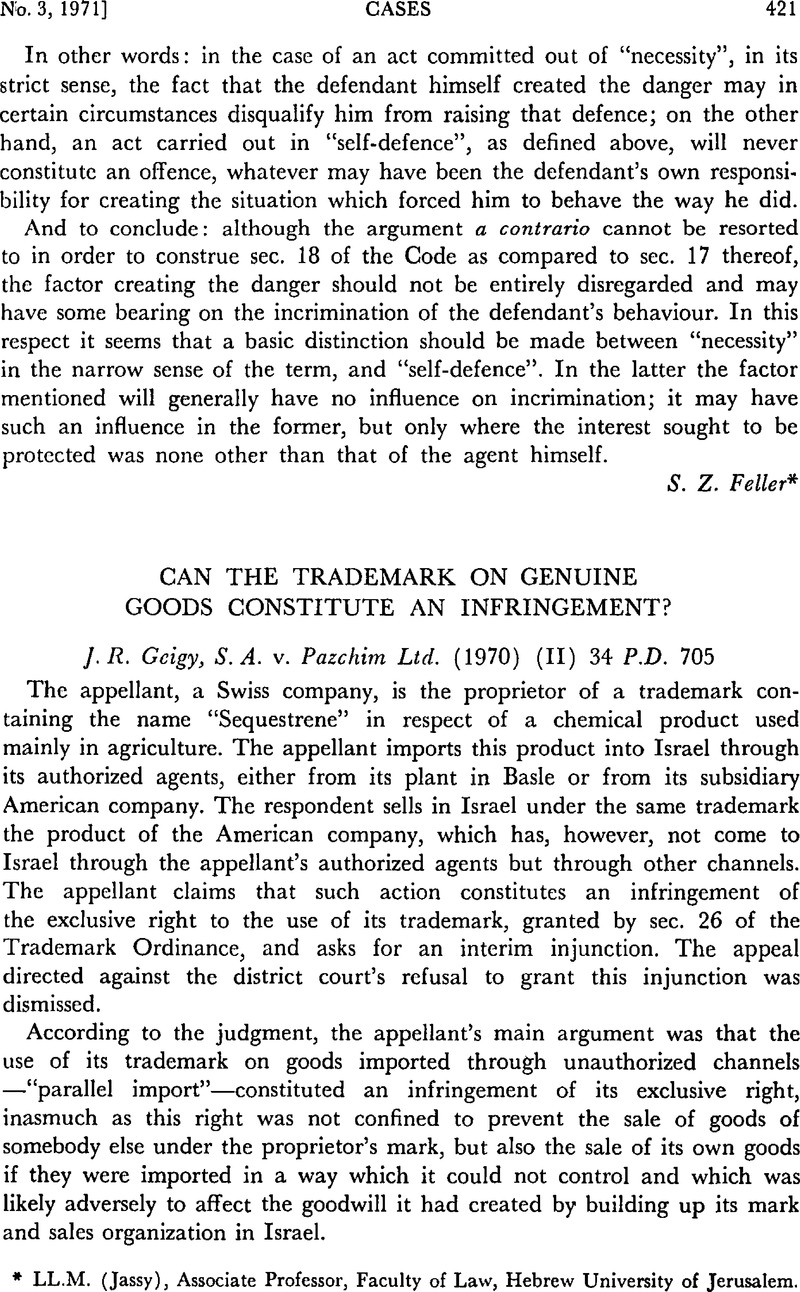No CrossRef data available.
Published online by Cambridge University Press: 12 February 2016

1 See Blum (1971) 6 Is.L.R. 18. This article, although written before, was published only after the judgment was given; the memorandum submitted by the Israel Group of the Association Internationale pour la Protection de la Propriété Industrielle (AIPPI), which was also prepared by the writer of these lines and which was before the Court, dealt mainly with the problem de lege ferendo.
2 AIPPI 1969, p. 33.
3 67 L Ed 464.
4 U.S. v. Guerlain Inc. & ors., 114 U.S.P.Q. (United States Patents Quarterly) 223.
5 Roger & Gallet v. Jeanmarie Inc., 114 U.S.P.Q. 238.
6 This law still obtains in the United States. See, “U.S. Customs Trademark Information”, issued by the Bureau of Customs in 1969; it was confirmed by Prof. Derenberg in his lecture at the Faculty of Law of the Hebrew University last year.
7 On a somewhat similar conflict under French law, see Ginossar, S., Liberté contractuelle et respect des droits de tiers (Paris, 1963) 85 ff.Google Scholar
* Dr. Jur. (Freiburg), Advocate. Former Registrar of Patents.